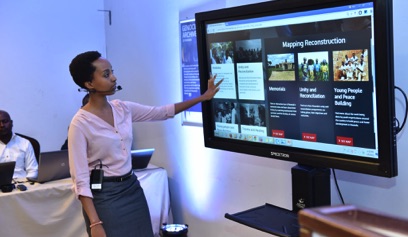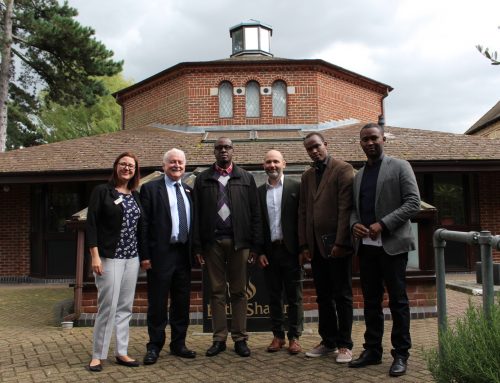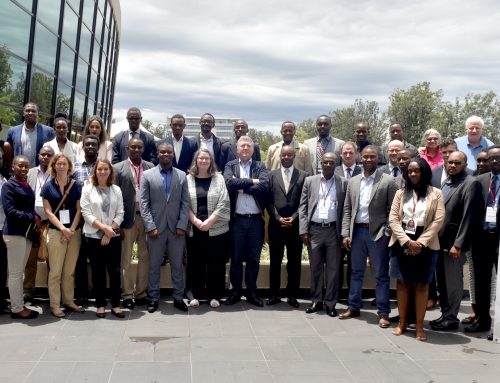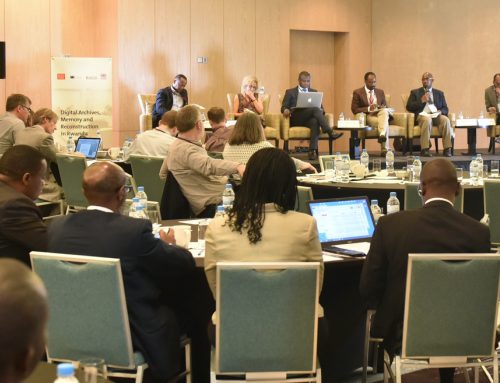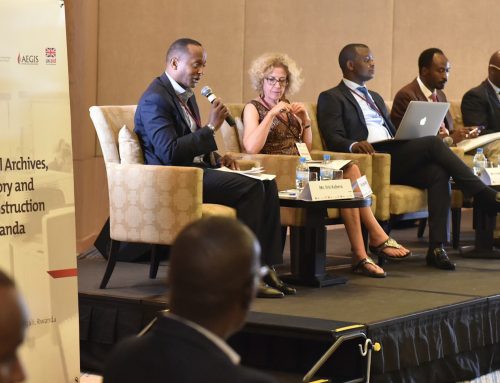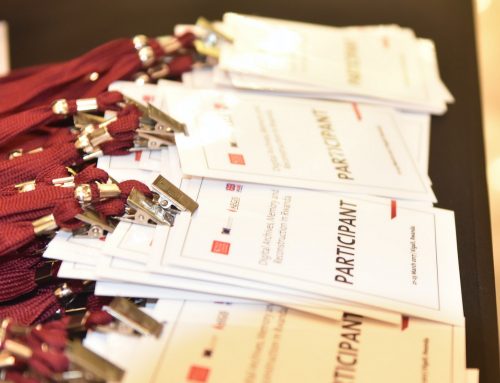The Aegis Trust has launched a new and expanded online Genocide Archive of Rwanda with over 8,000 historical photos, videos, documents, audio files and artefacts. The website is the best way for Rwandans and the international community to learn about the causes, implementation and consequences of the 1994 Genocide against the Tutsi. The Genocide Archive of Rwanda online collection serves as a tool for learning, research, fighting genocide denial and promoting peace building and reconciliation in the community.
Speaking at the launch event in Kigali on 9 June – International Archives Day – Minister of Justice Johnson Busingye thanked the archive team for making it easy for people to access vast amounts of information about the genocide.
“Thank you to the young men and women who have created the Genocide Archive of Rwanda website. The new digital archive is incredibly moving. It will free us from being hostage to our past, but it will also ensure we never forget what happened. The archive will support justice because justice depends on evidence and truth. It will also be a tool for the National Commission for the Fight against Genocide, Ibuka Rwanda and our international partners to fight against genocide ideology and denial,” he said.
The Genocide Archive of Rwanda was built to educate about the Genocide against the Tutsi and provides primary source material for researchers and students to use in their work. It is managed on a day-to-day basis by the Aegis Trust in Rwanda.
“With every day that passes, evidence of the Genocide against the Tutsi is lost. That’s why the archive is so incredibly important. I especially want to pay tribute to the survivors who have contributed their precious memories to the archive. The digital archive is accessible to everyone, anywhere, and will be a tool for atrocity prevention and peace education, for today’s generation and future generations,” said Dr James Smith, Aegis Trust CEO.
Organisations partnering with the Aegis Trust in the creation of the Genocide Archive of Rwanda include:
• Rwanda’s Ministry of Sports and Culture
• Rwanda’s National Commission for the Fight Against Genocide (CNLG)
• The Institute for War, Holocaust and Genocide Studies in the Netherlands (NIOD)
• University of Texas
• University of Southern California Shoah Foundation
• The Department for International Development (DFID), United Kingdom
• Embassy of the Kingdom of the Netherlands in Rwanda
• Swedish International Development Agency (SIDA)
• German Federal Enterprise for International Cooperation (GIZ)
The Genocide Archive of Rwanda has developed through countless individual contributions from the families and friends of victims of the Genocide as well as local NGOs and governmental institutions who collaborated in the identification and compilation of the collection.
Speaking at the launch, Executive Secretary of the National Commission for the Fight against Genocide, Dr Jean Damascène Bizimana said, “I thank the Aegis Trust team for the hard work they have done to build the Genocide Archive of Rwanda. The archive will play key role in fighting against denial of the Genocide against the Tutsi.”
The Genocide Archive of Rwanda was opened by then Prime Minister Bernard Makuza in 2010 at the Kigali Genocide Memorial. Established by the Aegis Trust in 2004 at the request of the Rwandan Government and Kigali City Council, the Memorial continues to be run by Aegis today on behalf of CNLG as a place of both remembrance and learning for a new generation. The Archive first developed in response to the need to store and preserve the information that was collected in the creation of the memorial exhibitions. Since then, it has become the World’s leading physical and digital archive of primary source material related to the Genocide against the Tutsi.
Visit www.genocidearchiverwanda.org.rw to learn more about the work of the Genocide Archive of Rwanda and to browse the collection of text, videos, images, photos, audio files, interactive maps and testimonies.

